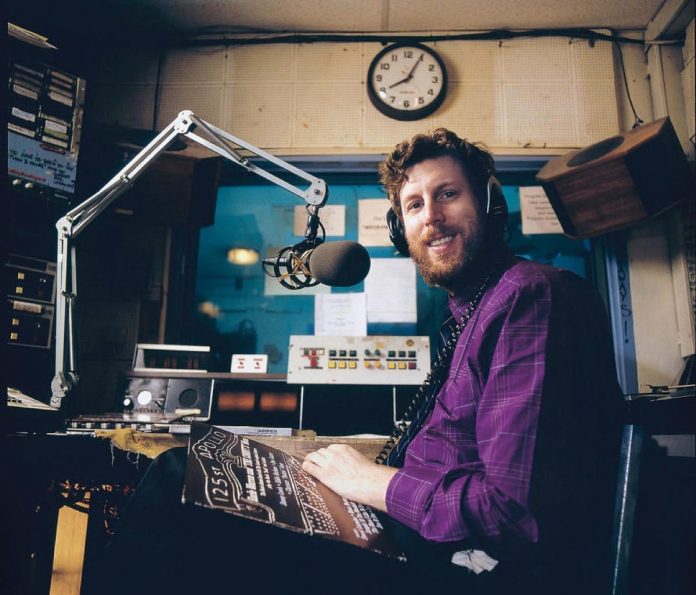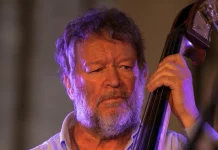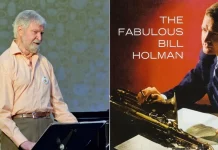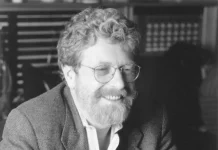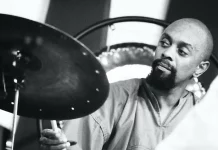Phil Schaap, broadcaster, educator, jazz historian, record producer and seven-time Grammy winner died in Manhattan on 7 September. He was 70, and for nearly 50 years was widely known in the United States for his broadcasts on WKCR-FM, the Columbia University radio station. His programme Bird Flight (on weekdays) was devoted entirely to the music of Charlie Parker, while Traditions In Swing (Saturday evenings) was meant to demonstrate that, in his own words, “the music hadn’t started with John Coltrane”.
It was Schaap’s compulsive attention to detail that both annoyed and amused his critics. The New Yorker’s David Remnick related Schaap’s long digression on the correct pronunciation and meaning of Parker’s recording Okiedoke – including its possible connection to Hopalong Cassidy films. Remnick concluded that “perhaps it was at this point that listeners all over the metropolitan area, what few remained, either shut off their radios, grew weirdly fascinated, or called an ambulance on Schaap’s behalf”.
He once admitted that his obsessions could be alarming, and that “sometimes I think I know more about what Dizzy Gillespie was thinking in 1945 than I do what I was thinking in 1967 or last week”. Max Roach (a close friend) told The New York Times that no one in the country “knows more about this music”, while writer Martin Johnson characterised him as “the genre’s foremost evangelist”.
Richard Brody, the New Yorker’s film critic, heard Schaap expound at a 1973 jazz festival dedicated to Bird: ”He didn’t just express his love for jazz, he implanted it in others.” Brody later recalled: “I was fifteen, just starting with jazz, and he Parkerized me for life.” Gary Giddins confessed that “People – me included – poked fun at his ability to recall what kind of sandwich Charlie Parker ate on a rainy Thursday afternoon. But he truly loved and understood jazz. He did a lot of good and nothing bad, and everyone who ever heard him on radio remembers his voice and his passion and that impossible memory.”
European jazz aficionados will be more familiar with Schaap’s awarding-winning CD compilations: The Complete Dean Benedetti Recordings Of Charlie Parker, commissioned by Michael Cuscana and issued on Mosaic, which entailed restoring the live performances made by Benedetti on fragile lacquer discs, and Bird: The Complete Charlie Parker On Verve.
He then produced The Complete Billie Holiday On Verve, 1945-1959, and Miles Davis & Gil Evans: The Complete Columbia Studio Recordings. In his liner notes to the Davis/Evans sessions, Schaap astutely observed: “This music is some of the greatest Jazz [sic] ever written or played but it is also conducted. And Gil Evans, not even a band leader at the time, was a conductor to rival anyone. He also got the best out of his star soloist.”
The indefatigable Schaap also annotated and produced Benny Goodman: The Famous 1938 Carnegie Hall Jazz Concert (1999) with expanded solos by Harry Carney, Freddie Green and Buck Clayton on the Honeysuckle Rose Jam Session, and Duke Ellington At Newport 1956 Complete (1999). These seminal releases were obviously considered when he was appointed the 2021 National Endowment of Arts A.B. Spellman Jazz Masters Fellow for Jazz Advocacy. From 1984-1991, Schaap was the archivist for the Savoy Jazz label. He also contributed highly informative “Biographical Sketches” to a lavish Wynton Marsalis compilation, Jazz A B Z: A Collection of Jazz Portraits (2005).
Philip van Noorden Schaap was born 8 April 1951 in the Hollis section of Queens, New York. His father, Walter Schaap, was a pioneering jazz scholar, and his mother, the former Marjorie Wood, a librarian and classically trained pianist. Growing up in Queens, he was surrounded by jazz musicians and drummer Jo Jones became his baby sitter. Another mentor was Buck Clayton, who impressed Schaap with his charm and knowledge. In 1966, during a subway strike, Schaap hitched a ride to Manhattan with Count Basie who was impressed by his forensic knowledge of his band. Possessing a photographic memory, at the age of two Schaap claimed that he could recite the U.S. presidents in alphabetical order.
In 1968 he enrolled at Columbia to study American history and became a DJ at WKCR-FM in February 1970. In later years he taught at Rutgers, Princeton, the Manhattan School of Music and Juilliard. In 2021 he recalled: “They say I’m a history teacher [but] I teach listening.” With the founding of Jazz at Lincoln Center, he helped coordinate Swing University, its jazz programme. Wynton Marsalis, Jazz at Lincoln Center’s artistic director, remembered that “he was a true inspiration . . . steadfast in his belief that the story of real, swinging jazz illustrates a positive, inclusive and successful metaphor for how we Americans could and would do better”. Saxophonist and fellow NEA Jazz Master Charles Lloyd first heard Schaap broadcasts in the early 1990s and called him “an educator in the purest and highest sense of the word”.
In a 1984 interview with the New York Times, Schaap reflected on his jazz odyssey: “I was a public school music student for 12 years and never heard the name Duke Ellington. Now I can correct such wrongs. I can be a Johnny Appleseed”.
He is survived by Susan Shaffer, his partner of 17 years.

